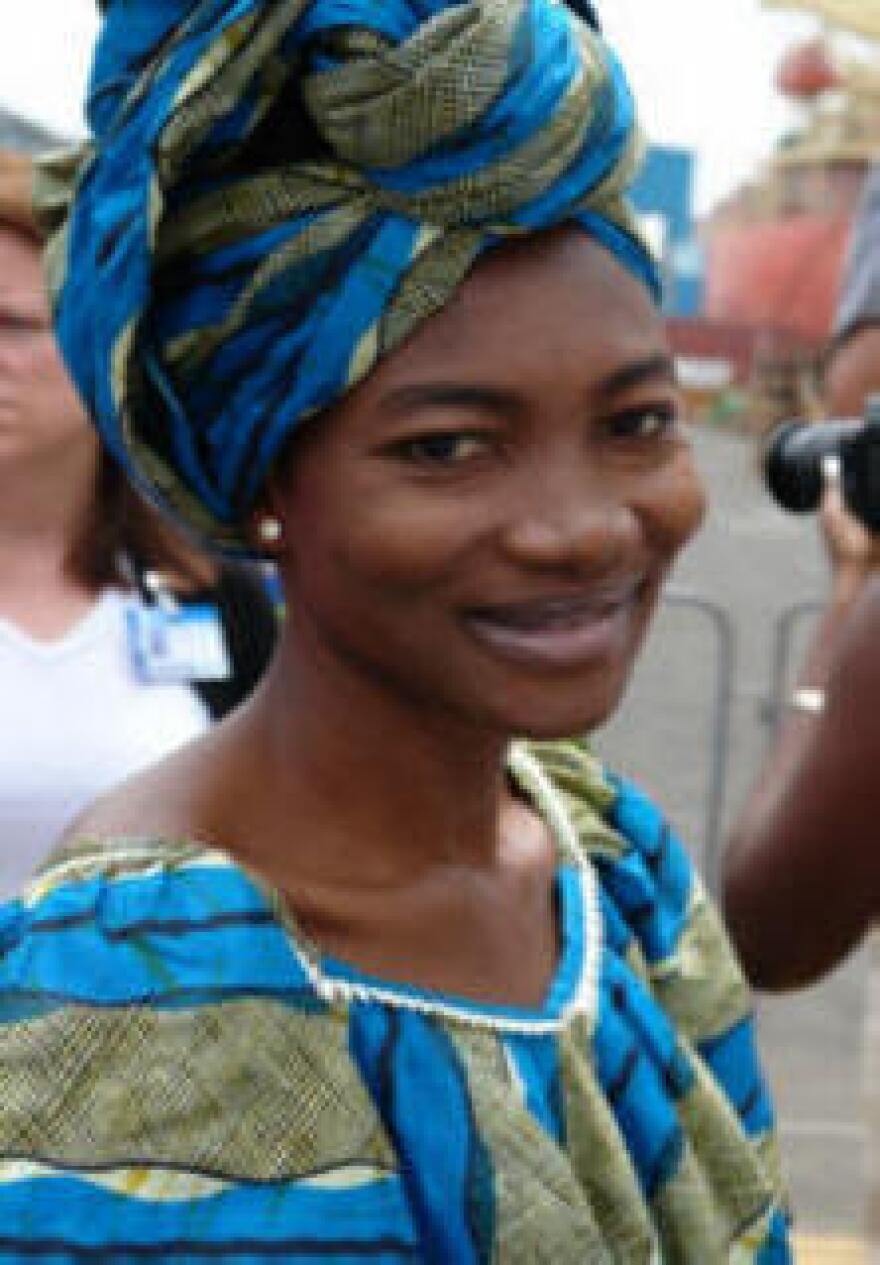By Catherine Wolf, KWMU
http://stream.publicbroadcasting.net/production/mp3/kwmu/local-kwmu-848701.mp3
St. Louis, MO –
Doctors estimate as many as four million women in Africa and Asia are suffering with a medical condition that often causes them to become outcasts from society. In the United States the condition is usually easily fixed with surgery, but in developing countries women can go their entire lives without getting treatment. A St. Louis doctor is leading the push to help women overseas get medical care.
Vera Williams is back at work after having surgery to repair a vesicovaginal fistula. That's an unnatural hole in the tissue between the bladder and the vagina. It causes women to leak urine 24 hours a day, but isn't normally painful. In the U.S. this type of fistula is rare, usually caused accidentally during surgery or radiation treatment. Williams got hers during a hysterectomy. She said before having surgery to repair it, she couldn't leave the house for more than a couple of hours for fear of soaking her clothes with urine.
"It wasn't painful it was just annoying because I was leaking constantly. I was having to wear Depends all the time and leaking through those I was leaking so bad."
 For women in developing countries, fistulas usually become a lifelong disability. Dr. Lewis Wall is gynecologist at Washington University's School of Medicine who treats women with the condition. Wall said in Africa girls marry young and get pregnant before their pelvic cavities are developed. As they labor, sometimes for days, the baby's head crushes the pelvic tissue causing a fistula. Once the hole has formed, girls often are rejected by their families because they can't work or keep themselves clean.
For women in developing countries, fistulas usually become a lifelong disability. Dr. Lewis Wall is gynecologist at Washington University's School of Medicine who treats women with the condition. Wall said in Africa girls marry young and get pregnant before their pelvic cavities are developed. As they labor, sometimes for days, the baby's head crushes the pelvic tissue causing a fistula. Once the hole has formed, girls often are rejected by their families because they can't work or keep themselves clean.
"So for these girls their lives are basically over at 14 or 15. Their husbands say, I'm sorry I can't live with this anymore. I need a wife, not the thing you've become and so they get sent off to the margins of society. Their husbands leave them or they get divorced."
In 1995, Wall set up the Worldwide Fistula Fund. It's a non-profit that raises money for surgeries and building clinics. He and other doctors travel to Africa several times a year to perform surgeries. Wall said he treats as many as 40 women in a two-week visit, compared to only about six per year in the U.S.
Most women who don't receive treatment spent their lives homeless or in shelters. More than 90% of their babies die during childbirth. Wall said the women's lives could be dramatically different if they had access to medical care. He said in many cases an operation to repair a fistula a simple matter of stitching up the hole. However, most women can't afford the cost - it's equivalent to a year's salary. And, Wall said, women's health issues are not a medical priority.
"Within the African societies themselves, where maternal death and injury are so common place it's often accepted as just a part of life. Women have babies, women die in childbirth, women get injured in childbirth. That's just the way the world is."
Besides access to medical care, Wall said the women also need education and rehabilitation programs to help them re-enter society.
One of the patients that Wall has treated in the U.S. is Vera Williams. She suffered with a fistula for only a few weeks before receiving treatment, but had multiple urinary tract infections during that time. Williams said she can't comprehend how women live with a fistula for decades.
"The risk of having more infections and more problems and scar tissue and all this other stuff, it's all there. No, I can't imagine doing that for more than as long as I had to."
Awareness of the fistula problem appears to be slowly increasing in this country. In recent years, several other organizations have been started to help women with the condition.

